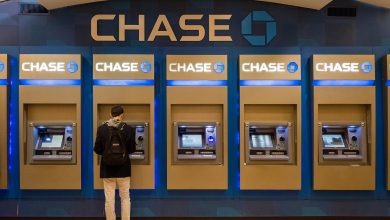When to Open a Checking Account

When to Open a Checking Account: A Guide for Every Stage of Life
A checking account is often the cornerstone of personal finance. It’s where your paycheck lands, where you manage day-to-day spending, and how you pay your bills. But when is the right time to open one? The answer depends on your financial needs, life stage, and goals. Here’s a guide to help you decide when to take this important financial step.
1. When You Get Your First Job
One of the best times to open a checking account is when you land your first job. Having a secure place to deposit your paycheck is essential. Most employers offer direct deposit, which means your wages will go straight into your checking account. This not only keeps your money safe but also makes it easy to track your income and expenses.
2. When You’re Heading to College
College is a time of independence, and managing your own money is a big part of that. Many banks offer student checking accounts with perks like no monthly fees and free ATM usage. If you’re going to school far from home, look for a bank with nationwide branches or robust online banking features.
3. When You Start Paying Bills
As you transition into adulthood, paying bills becomes a regular part of life. A checking account simplifies this process by enabling online payments, automatic bill pay, and tracking of your financial obligations. If you’ve been relying on cash or prepaid cards, switching to a checking account can help you establish better financial habits.
4. When You Need Financial Flexibility
Whether it’s splitting the bill at a restaurant, sending money to a friend, or shopping online, a checking account gives you the flexibility you need for modern transactions. Mobile banking apps linked to your account allow you to transfer money instantly, check balances, and even deposit checks with a quick photo.
5. When You Want to Build Financial History
Opening a checking account is an early step in establishing your financial identity. A good banking relationship can lead to other benefits, such as access to loans, credit cards, or investment accounts. Consistent use of your checking account shows banks you’re responsible, which can be helpful when applying for credit.
6. When You Need Budgeting Tools
Many banks now offer tools within their checking accounts to help you budget, categorize spending, and set savings goals. If you’re working to improve your financial health, a checking account can provide insights into where your money is going and help you make informed decisions.
What to Look for in a Checking Account
When opening a checking account, keep these factors in mind:
- Low or No Fees: Look for accounts with no monthly maintenance fees or easily waivable fees.
- Convenient Access: Ensure the bank has ATMs or branches near you and offers a user-friendly mobile app.
- Account Features: Consider overdraft protection, rewards, or cashback offers tied to the account.
- Customer Support: A bank with strong customer service can be a lifesaver if issues arise.



